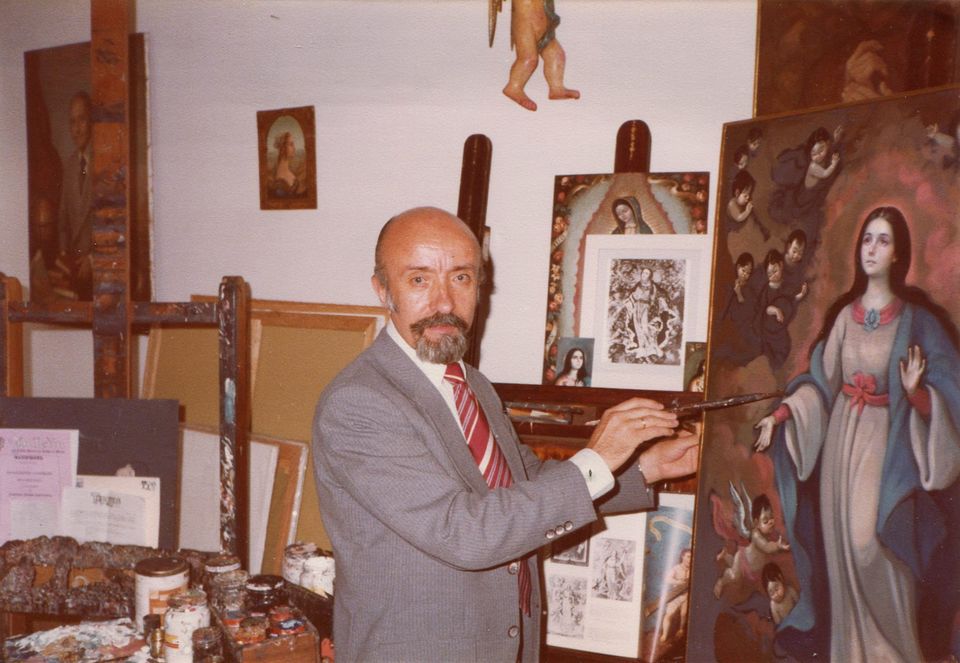Chapter VII
Technical development
and ‘fight against time’
‘What a sun, warming the already old world
shall ripen the glorious labours again
who shone in the hands of virile nations?’
Leconte de Lisle (L’Anathème’, Poèmes Barbares)
It should be noted that the Churches, which theoretically should be the custodians of all that Christianity may contain in terms of eternal truth, [1] have only opposed scholars when the latter’s discoveries tended to cast doubt on, or openly contradicted, the letter of the Bible. (Everyone knows Galileo’s disputes with the Holy Office about the movement of the Earth.)
But there was never, to my knowledge, any question of their protesting against what seems to me to be the stumbling block to any unselfish research of the laws of matter or life; namely, against the invention of techniques designed to thwart natural purpose—what I shall call techniques of decadence. Nor did they denounce and condemn categorically, because of their inherently odious character, certain methods of scientific investigation such as all forms of vivisection.
______ 卐 ______
Editor’s Note: They don’t mind tormenting animals because they are Neanderthals; that is to say, they belong to an inferior psychoclass to ours: just as the pre-Columbian Amerinds belonged to an inferior psychoclass to that of the Spaniards. Is this passage from my Day of Wrath remembered (in the chapter ‘Sahagún’s exclamation’)?:
I don’t believe that there is a heart so hard that when listening to such inhuman cruelty, and more than bestial and devilish such as the one described above, doesn’t get touched and moved by the tears and horror and is appalled; and certainly it is lamentable and horrible to see that our human nature has come to such baseness and opprobrium that [Aztec] parents kill and eat their children, without thinking they were doing anything wrong.
Like Sahagún, the priestess and the priest of the four words (‘eliminate all unnecessary suffering’) throw our hands up in horror when the man of today torments defenceless creatures, to the point of precognizing the appearance of a Kalki who avenges them (and us). Savitri continues:
______ 卐 ______
They could not, given the anthropocentrism inherent in their very doctrine. I recalled above that the vision that the esoteric teaching of Christianity opened to its Western initiates in the Middle Ages did not go beyond ‘Being’. But no exoteric form of Christianity has ever gone beyond ‘man’. Each of them affirms and emphasises the ‘apartness’ of that being, privileged whatever his individual worth (or lack of it) whatever his race or state of health. Each one proclaims concern for his own best interest, and the help it offers him in the search for his ‘happiness’ in the hereafter, certainly, but already in this lower world. Each of them is concerned only for him, ‘man’, always man, contrary even to the ‘exoterisms’ of Indo-European origin (Hinduism; Buddhism) which insist on the duties of their followers ‘towards all beings’.
______ 卐 ______
Editor’s Note: Remember my post from exactly a month ago: This very Catholic painter asked me at a family dinner: “¿Por qué los animales todavía existen?” (‘Why do animals still exist?’).
______ 卐 ______
It is, I think, precisely to this intrinsic anthropocentrism that Christianity owes the short duration of its positive role in the West insofar as, despite all the horror attached to the history of its expansion, a certain positive role can be attributed to it. Once weakened and death, the influence of its true spiritual elite—that which, until perhaps the 14th or 15th century, was still attached to Tradition—nothing was easier for the European than to move from Christian anthropocentrism to that of the rationalists, theists or atheists; to replace the concern for the individual salvation of human ‘souls’, all considered infinitely precious, by that of the ‘happiness of all men’ at the expense of other beings and the beauty of the earth, due to the proliferation of the techniques of hygiene, comfort and enjoyment within the reach of the masses.
Nothing was easier for him than to continue to profess his anthropocentrism by merely giving it a different justification, namely, by moving from the notion of ‘man’, a privileged creature because he was ‘created in the image of God’—and, what is more, of an eminently personal ‘god’—to that of ‘man’: the measure of all things and the centre of the world because he’s ‘rational’, that is to say, capable of conceiving general ideas and using them in reasoning; capable of discursive intelligence hence of ‘science’ in the current sense of the word.
The concept of ‘man’ indeed underwent some deterioration in the process. As Antoine de Saint-Exupéry has shown, the human individual, deprived of the character of ‘creature in the image of God’ that Christianity conferred on him, finally becomes a number within a pure quantity and a number that has less and less importance in itself. Understandably, everyone is sacrificed ‘to the majority’. But we no longer understand why ‘the majority’, or even a collectivity of ‘a few’, would sacrifice themselves or even bother for another one.
Saint-Exupéry sees the survival of a Christian mentality in the fact that in Europe, even today, hundreds of miners will risk their lives to try to pull one of them out of the hole where he lies trapped under the debris of an explosion. He predicts that we are gradually moving towards a world where this attitude, which still seems so natural to all of us, will no longer be conceivable.
Perhaps it is no longer conceivable in communist China. And it should be noted that, even in the West where it is still conceivable, the majorities are less and less inclined to impose simple inconveniences on themselves to spare one or two individuals, not of course of death but discomfort and even real physical suffering. The man who is most irritated by certain music, and who isn’t sufficiently spiritually developed to isolate himself from it by his asceticism, is forced to endure, in the buses, and sometimes even in the trains or planes, the common radio or the transistor of another traveller if the majority of passengers tolerate it or even more so enjoy it. They are not asked for their opinion.
One can, if one wishes, with Saint-Exupéry, prefer Christian anthropocentrism to that of the atheistic rationalists, fervent of experimental sciences, technical progress and the civilisation of well-being.
______ 卐 ______
Editor’s Note: This is true, and the best way to show it is to compare the most famous television series introducing the West: Kenneth Clark’s Civilisation (1969), Jacob Bronowski’s The Ascent of Man (1973) and Carl Sagan’s Cosmos (1980). Obviously, the series by Christian Clark has its problems, but at least he transmits the spirit of the Aryan through art. Bronowski and Sagan on the other hand present civilisation from the point of view of science and technology: something that betrays the essence of the Aryan and his notion of the numinous.
______ 卐 ______
It is a matter of taste. But I find it impossible not to be struck by the internal logic that leads, without a solution of continuity, from the first to the second and from the latter to Marxist anthropocentrism for which man—himself a pure ‘product of his economic environment’—taken en masse is everything; taken individually, worth only what his function in the increasingly complicated machinery of production, distribution and use of material goods for the benefit of the greatest number. It seems to me impossible not to be struck by the character quite other than revolutionary and of Jacobinism at the end of the 18th century; and Marxism (and Leninism), both in the 19th and in the 20th.
____________
[1] Offered to the faithful through the symbolism of sacred stories and liturgy.










